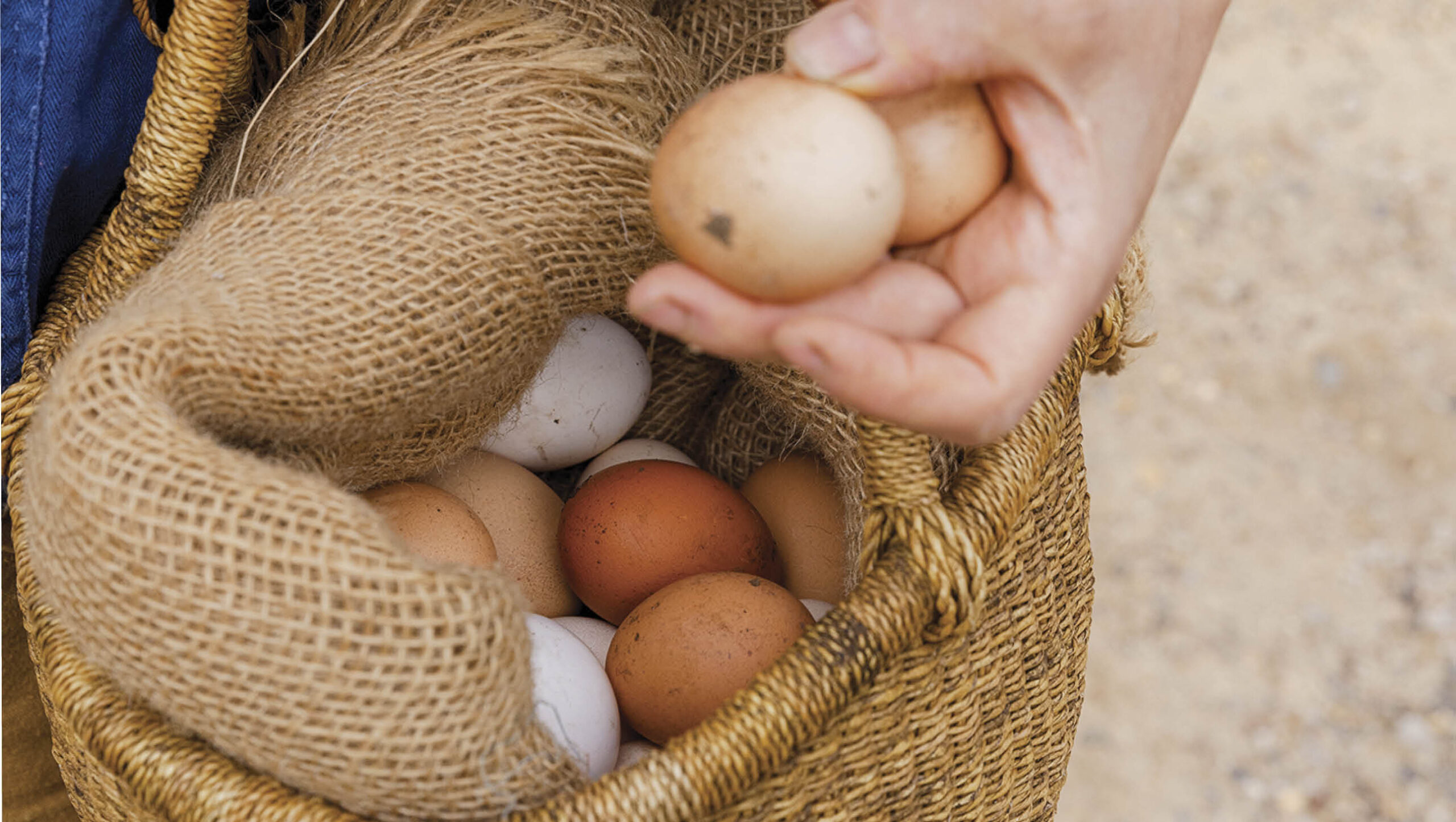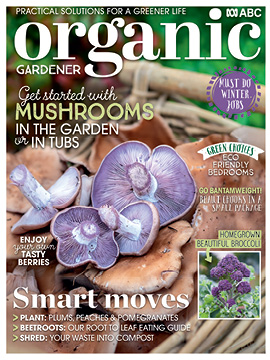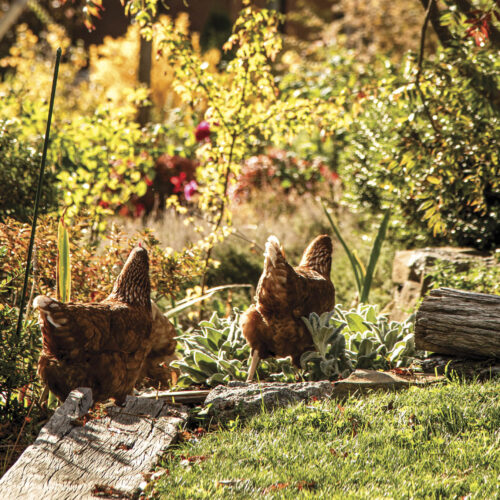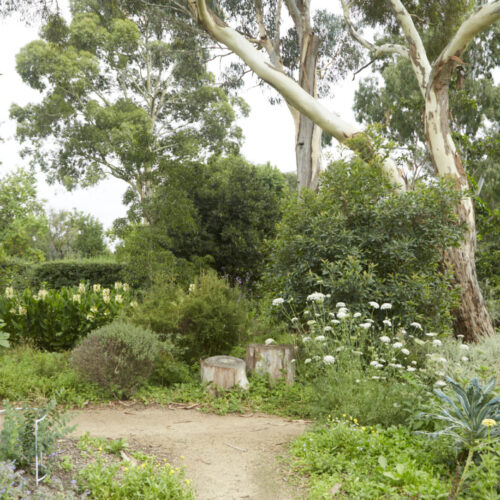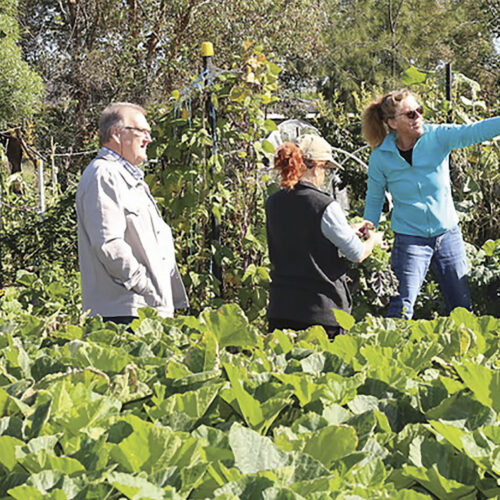Connecting through gardens
2023-05-02T07:05:24+10:00
A social enterprise called Farm It Forward helps connect landowners with young people to grow food and community, writes Jacqueline Forster.
Tucked away, at the end of a long gravel drive on the bushy outskirts of Blue Mountains suburbia in NSW, Emmanuela Prigioni (who likes to be called Manu) has created a tiny house haven surrounded by an abundant vegie plot. Both the house and the garden have a strong connection to Manu’s nurturing philosophy, which led her to establish the social enterprise Farm It Forward to help grow food and community.
The idea behind Farm It Forward, to unite landowners with young people to grow food and community, has won accolades from far and wide; the model adopted by like-minded folk in Tasmania, Queensland, Victoria and WA. For Manu, whose Instagram profile reads ‘artist/farmer/scientist’, the notion of nurturing oneself and others through art and food growing, was a seed subliminally planted during a European childhood.
Manu travelled to Australia on a working holiday aged 19 and pretty much stayed from then on, but it was some time until Manu reconnected with the inner nature lover she’d known in her childhood.
Connecting landowners to local young people
It wasn’t until after the birth of her second child that Manu found gardening again, devouring all the food-growing information she could find, studying permaculture, holistic management and soil microbiology. During this time, while working as garden coordinator at Lyttleton Stores Cooperative (in Lawson NSW), she dreamed up the Farm It Forward movement.
“I visited a lot of backyard growers who sold their produce at the local co-op and I started to notice a recurring theme: a connection was missing,” Manu says.
“People wanted their gardens to be more productive but didn’t have the mobility, the means, the skills, or the time to do it. At the same time, there were younger people, eager to learn and committed to doing something about future food security, who were frustrated because they didn’t have access to land. I shared my idea with friends who had the same impetus and we joined forces to form Farm It Forward.”
Three years later the group now tends seven plots in the mid-Blue Mountains, plus an orchard, and joint market garden project with the Blue Mountains Food Co-op in Katoomba. Manu shares the load with three fellow urban farmers, James Broughton, Hannah Axelsen and Mitchell Andrews. Together they oversee the market gardens, hold a weekly farmgate stall, and manage the social outreach programs of the not-for-profit.
Landowners receive a weekly selection of fruit and veg from their and other gardens, with excess produce sold through the farmgate stall or to local co-ops. All profits are used to employ more young people to grow food and facilitate community outreach.
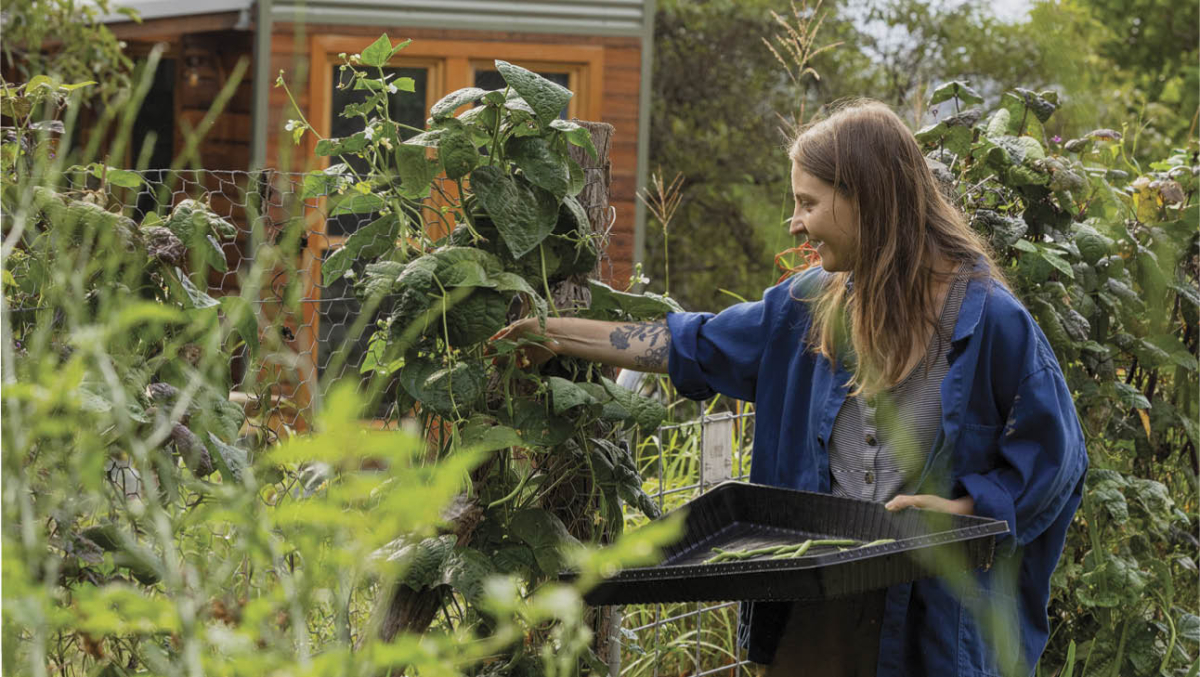
How Farm it Forward works
Landowners open their land up for market gardening and in exchange receive:?
- A weekly selection of regeneratively grown vegies (from their own land or other gardens in the project).
- A weekly visit by paid young people and volunteers who establish and maintain the food gardens.
- Get to be part of the wider organic gardening and farming community and join cross-generational activities and events.
For more information: farmitforward.com.au
Manu’s tiny house is featured in our Early Winter issue (OG 141). Learn how Manu built her home with a composting toilet, rainwater storage and solar panels with battery backup.
There’s a selection of back issues available here — you can also subscribe and get the most recent issues delivered to your door!

